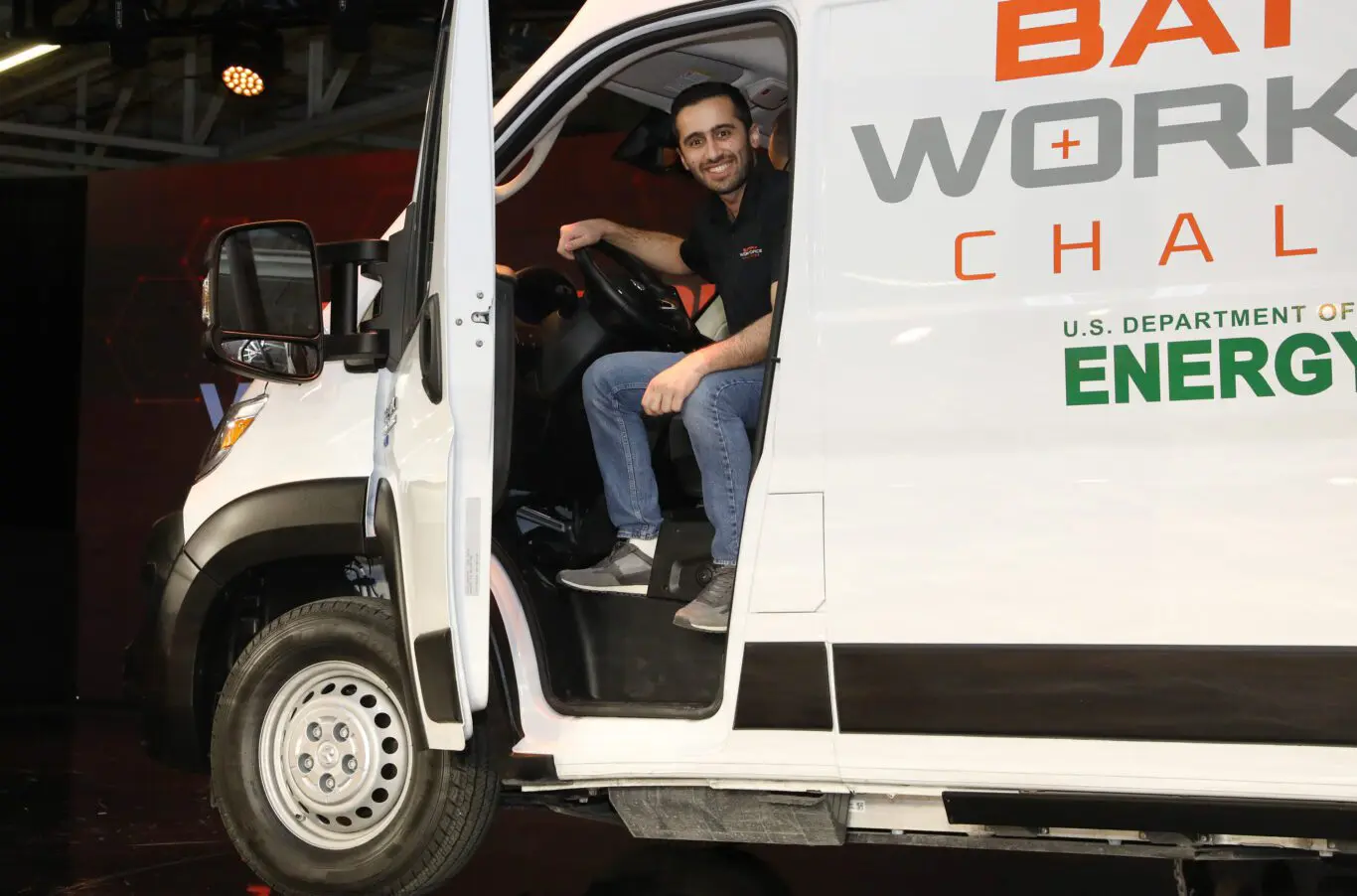Hi, I’m Mohammad Alsmadi, and during the first year of the Battery Workforce Challenge, I served as the project manager for The University of Alabama & Shelton State Community College team. I worked closely with our faculty advisor to manage and oversee the entire team’s processes toward success.
I have been working on battery management systems and power electronics research for several years before the opportunity to participate in the Battery Workforce Challenge collegiate competition was offered to me. I felt this was a great opportunity for me, and without hesitation I took the project manager role. The Battery Workforce Challenge is part of the Advanced Vehicle Technology Competitions series, which provides premier North American collegiate automotive engineering competitions spanning more than 30 years and has more than 30,000 alumni. The BattChallenge is preparing me to be among the future workforce that will take part in advancing electric vehicle technology contributing to the U.S. Department of Energy’s goal to reach net-zero emissions by 2050.

As the team’s project manager, my responsibilities include, but are not limited to, setting up a project plan and goals; providing project oversight; establishing a partnership with our vocational school; planning and executing competition tasks and deliverables; tracking recruiting, retention, and knowledge transfer; and representing our team in the workshops and the competition. In addition, I participate in the engineering design and deliverables, conduct youth outreach events, and integrate diversity, equity, and inclusion into our team processes.
Managing a large and ambitious team in the first year of this competition was challenging but rewarding. For example, working under tight schedules and deadlines with students from a wide spectrum of majors, school years and backgrounds was not easy, but it was a valuable learning experience. It required effective time management and dealing with unexpected setbacks while ensuring the team is progressing in the competition.
To be able to achieve our team objectives, I strived to capture the best potential of every team member based on their skills and knowledge while carefully considering their school schedules and other commitments. Those challenges offered me immense opportunities for personal and professional growth. I learned how to push the boundaries and utilize resources to make sure our team had a smooth start and exciting journey into this amazing program.

One of our team goals was to be among the top quartile in the competition, and we ended up winning the Third-Place Overall award. In addition, our team won the Most Creative Technical Design Check-In and the Overall Engineering Management awards at the end of the first year. These awards were a result of the hard work of team members which I, as a project manager, am proud of.
The Battery Workforce Challenge Competition is a unique opportunity for students to get hands-on experience in engineering, management and communications to prepare themselves to be skilled workers in the transportation electrification industry. I highly encourage students to join this competition.
The resources students will have access to, the industry-level experience they will gain, and the people they will connect with provide unique opportunities for them to utilize, paving the way for their future careers. The way this competition is designed makes it transcend classroom and unlock potentials of bright minds both in engineering and management.

My experience in the Battery Workforce Challenge was rich and exciting. I can see improvements in my teamwork and collaboration skills. As an electrical and computer engineering doctoral student working under the supervision of Jaber Abu Qahouq, a professor at UA’s Department of Electrical and Computer Engineering, I expect that this experience will have a huge boost in my engineering and research career.
In addition to the technical skills, I had the chance to significantly improve my management and leadership skills. Adding management to my engineering and research skillset will definitely help me blend into the EV and battery industry and be able to contribute to transportation electrification and decarbonization to help achieve the U.S. DOE’s net-zero emissions goal by 2050.
